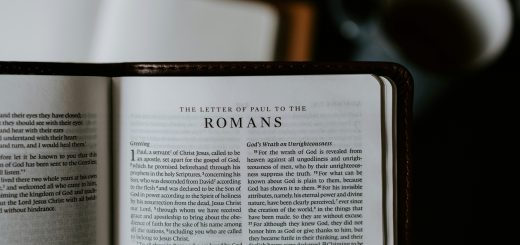Genesis 37:12-36

As the story of Jacob’s family progresses, we come to a section of the story that is absolutely filled to the brim with events. In the short span of 25 verses, we are told of how Joseph is brought from one challenging situation to the next; how he is brought from the comfort and safety of life as a favoured son in the Valley of Hebron to the completely opposite life of a slave in Egypt.
In these 25 verses, Joseph is put through numerous circumstances that could easily have resulted in a very different ending to our story.
Firstly, Joseph is asked by his father Israel to travel to Shechem to check up on his brothers. The last mention of Shechem in Genesis 34 recalls the rogue actions of Simeon and Levi in taking vengeance upon Shechem, the Hivite prince of the land, for his defiling of their sister Dinah. These actions resulted in hostility between Jacob’s family and the Canaanites and the Perizzites (Genesis 34:30). In fact, it was probably this hostility in the first place that caused Jacob to send Joseph out of concern for his other sons pasturing the flock near Shechem, the area Shechem and the Hivites inhabited. As dangerous as it was for Joseph’s brothers to be in this area together, imagine how much more so it was for Joseph, who was not only searching for his brothers alone, but doing so while in a flashy robe! Fortunately for Joseph, the first person to find him wandering in this dangerous territory wasn’t a band of Canaanites or Perizzites out for revenge, but was a rather helpful man that just happened to be able to point him to Dothan, where his brothers were.
In this passage, Joseph also escapes death at the hands of his brothers not once, but twice due to the intervention of Reuben, and then Judah. This results in him being sold to the Ishmaelite/Midianite slavers who bring him to Egypt of all nations, where out of all the people he could have been sold to in Egypt, he ends up in Potiphar’s household.
Each of these 5 instances could easily have ended differently. Joseph could have ended up dead, or he could have been sent to another country besides Egypt, or he could have ended up in another household in Egypt. We can see God’s faithful hand guiding Joseph through all these circumstances to the place he needed to be in order for him to eventually save His family from starving to death many years later. This is a story of God’s deliberate actions to fulfil His original promise to Abraham in Genesis 12, even in the most messed up circumstances.
The important question is: What does this story mean to us?
What do we lose if any of the circumstances above had changed? What if Joseph had indeed been killed by Canaanites, or by his brothers? What if he hadn’t ended up in Potiphar’s house in Egypt? The answer to these questions reflect how the story of Jacob is of fundamental importance to us as believers. God’s faithful preservation and guidance of Joseph’s life, as Pastor David pointed out on Sunday, directly results in the immediate fulfilment of His covenant with Abraham from Genesis 12, but also results in its ultimate fulfilment in Christ. It is in Jesus, who is from Abraham’s line, that all the families of earth will ultimately be blessed with salvation.
Understanding this truth transforms the story of Joseph from a simple historical account into a description of God working out salvation in our own lives! The life of Joseph and the events he goes through then become immensely important to us. This realization must shape our perspective as we look through these events.
As we continue seeing Joseph’s life unfold in Genesis, let’s be reminded that this isn’t simply the historical account of Jacob’s family. It’s much more than that. It’s very much our story as well—God working out His great plan for our salvation!
Vernon Quek









